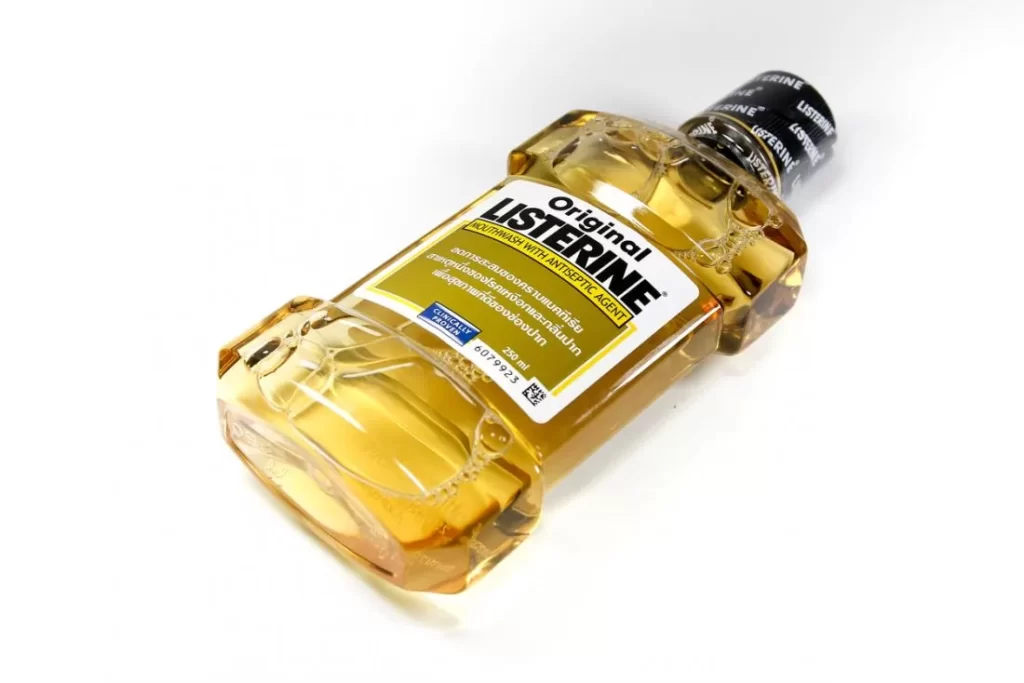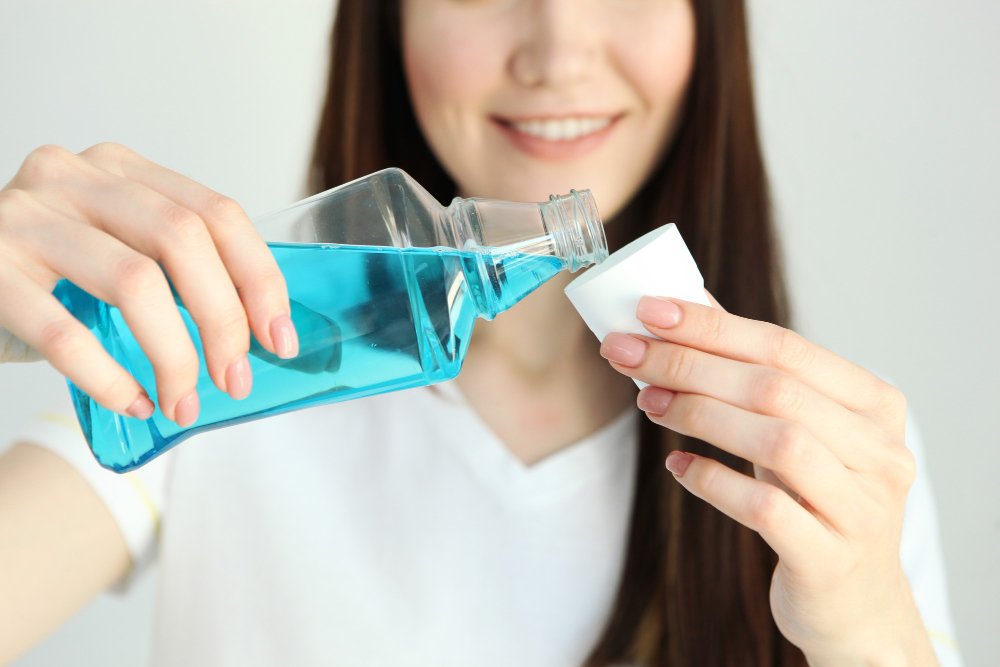Click to call
Listerine Mouthwash
Listerine, a brand of antiseptic mouthwash and products for oral care, originated in the late 1800s through the efforts of Dr. Joseph Lawrence and Jordan Lambert, who intended it for surgical antiseptic use. The name “Listerine” pays homage to Sir Joseph Lister, a pioneering surgeon renowned for introducing antiseptics to prevent infections during medical procedures.
The composition of Listerine mouthwash includes a variety of active elements such as alcohol, essential oils (such as eucalyptol, menthol, thymol, and methyl salicylate), and additional flavoring agents. These constituents collaborate to combat or hinder the proliferation of mouth bacteria, thus promoting enhanced oral cleanliness and a more pleasant breath

Indications:
- Bacterial Reduction: Listerine helps in reducing harmful bacterial load in the mouth.
- Breath Freshening: Listerine aids in disguising unpleasant breath by focusing on the bacteria responsible for generating disagreeable odors. It imparts a sensation of freshness and improved breath.
- Gum Well-being: Listerine’s antiseptic characteristics can contribute to sustaining healthier gums by lessening harmful bacteria that can lead to gum inflammation and periodontal diseases.
- Plaque Management: Regular application of Listerine can aid in managing the creation of dental plaque, a sticky bacterial film that can cause tooth decay and gum troubles.
- Preventive Measures: Integrating Listerine into an oral care regimen involving brushing, flossing, and dental check-ups can assist in forestalling oral health complications.
- Post-Surgery or Dental Procedures: On occasion, dental professionals might suggest employing Listerine as a post-surgery rinse to uphold oral hygiene and prevent infections following dental treatments.

Is Listerine safe for daily use?

Listerine is generally considered safe for most people and can be used for both short-term and long-term oral hygiene. However, there are a few things to consider:
- Alcohol Content: Listerine contains a significant amount of alcohol, usually around 21.6% alcohol by volume. Prolonged and excessive use of alcohol-containing mouthwashes can potentially lead to dry mouth, irritation, and even oral health issues in some individuals. If you have concerns about alcohol content, you might consider alcohol-free alternatives.
- Sensitive Individuals: Some individuals might be sensitive to the ingredients in Listerine, especially the alcohol and essential oils. This can lead to mouth irritation, burning sensation, or other adverse reactions. If you experience any discomfort, you should discontinue use and consult a dentist or healthcare professional.
- Oral Microbiome: Long-term use of strong antiseptic mouthwashes like Listerine could potentially disrupt the balance of bacteria in your mouth, including both harmful and beneficial bacteria. Maintaining a healthy balance of oral microbiota is important for oral health.
- Consult a Professional: If you’re uncertain about using Listerine or any other oral hygiene product, it’s always a good idea to consult a dentist. They can provide personalized recommendations based on your oral health needs and any specific concerns you might have.
- Alternatives: There are various alternatives to Listerine available, including alcohol-free mouthwashes and fluoride rinses
Can long term Listerine usage lead to staining of teeth?

To minimize the risk of staining while still enjoying the benefits of Listerine or similar mouthwashes:
1. Follow Instructions: Adhere to the usage directions provided on the product label and avoid excessive use.
2. Properly Rinse: After using the mouthwash, ensure you rinse your mouth thoroughly with water to eliminate any lingering product.
3. Explore Alternatives: If you have concerns about staining, consult with your dentist or healthcare provider. They might recommend alternative mouthwash options less likely to cause staining or offer other strategies to address your oral health needs.
4. Regular Dental Check-ups: Routine dental check-ups are essential for your dentist to monitor your teeth and gum health. If staining occurs, your dentist can advise on stain removal and prevention strategies.
Yes, long term use of Listerine or similar mouthwashes that contain specific ingredients can potentially result in tooth staining. This staining is most commonly associated with mouthwashes containing substances like chlorhexidine and cetylpyridinium chloride.
Here’s how this staining can occur:
1. Chlorhexidine: Some prescription mouthwashes or dental rinses, which are stronger than over-the-counter Listerine, may include chlorhexidine. Over time, chlorhexidine can lead to brown or yellow stains on the teeth, often referred to as “chlorhexidine staining.”
2. Cetylpyridinium Chloride: Certain over-the-counter mouthwashes, including select Listerine varieties, contain cetylpyridinium chloride. Using mouthwashes with this ingredient for an extended period may potentially cause tooth staining, although it’s less common compared to chlorhexidine.
It’s important to note that not everyone who uses these mouthwashes will experience staining, and the degree of staining can vary among individuals. Additional factors like oral hygiene practices, diet, and genetic factors can also influence tooth staining.

